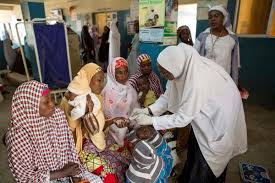
Iliyasu Abdullahi Ba
The fragile Nigerian health system faces unprecedented strain as health workers in Zamfara and resident doctors nationwide escalate industrial actions, even as a deadly cholera outbreak spreads rapidly across northern states.
In Zamfara State, authorities have issued an urgent plea to the Medical and Health Workers Union of Nigeria (MHWUN) to suspend its strike amid worsening cholera infections that have already claimed lives and put thousands at risk.
State Commissioner for Health, Dr. Nafisa Mohammed Maradun, described the union’s action as ill-timed and potentially catastrophic. “It is disheartening that the union has chosen to embark on a strike at a time when our collective focus should be on containing the cholera outbreak,” she said in a statement on Thursday. “We are at a critical juncture where every hand is needed on deck to save lives.”
Maradun acknowledged the legitimacy of the workers’ grievances over welfare, delayed entitlements, and poor conditions, noting that the state recently approved salary increases for medical professionals. She assured that negotiations on broader remuneration packages remain ongoing.
Still, the Commissioner warned that continued industrial action would “cripple interventions and lead to avoidable loss of lives,” stressing the plight of women, children, and the elderly most vulnerable to the outbreak. Zamfara, like several other states, has been overwhelmed by cholera cases worsened by poor sanitation, limited access to clean water, and overcrowded health facilities.
While Zamfara grapples with the outbreak, the crisis is deepening at the national level. On Friday, the National Association of Resident Doctors (NARD) began a five-day warning strike, paralyzing routine medical services across public hospitals nationwide.
NARD President, Dr. Tope Osindare, said the strike was provoked by the federal government’s persistent failure to implement agreements. Key demands include payment of the 2025 Medical Residency Training Fund, settlement of salary arrears, and review of hazard allowances.
Dr. Osindare lamented that the action became inevitable after “immense patience and patriotism” had been met with government inaction. “This five-day warning strike is to demonstrate the seriousness of our plight and to urge the government to immediately address these issues to avoid a more protracted and total shutdown,” she said.
The impact has been swift: outpatient services and routine inpatient care have ground to a halt, while emergency and critical units are under immense strain. Patients face long waits, postponed surgeries, and uncertainty as consultants struggle to fill the gaps.
The Federal Ministries of Health and Labour have since called for emergency talks with NARD’s leadership, urging calm and promising that efforts are underway to resolve the dispute.
With Zamfara’s cholera epidemic intensifying and public hospitals nationwide crippled, health experts warn that Nigeria risks sliding into a full-blown health catastrophe unless urgent compromises are reached.
For many citizens, the standoff underscores the fragile state of the country’s health system—underfunded, overstretched, and now caught between epidemics and industrial strife.
